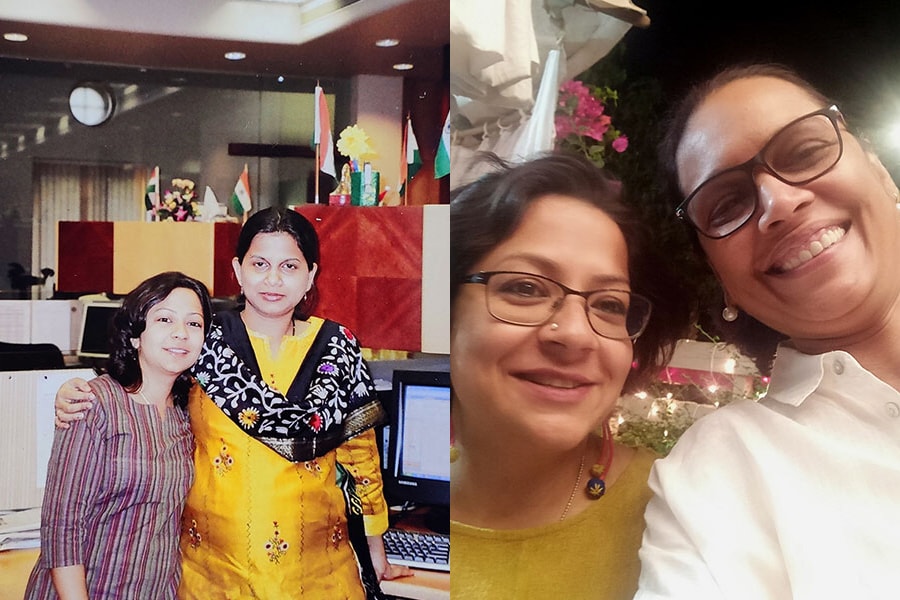
Life after a layoff
Your career is far from over even if you've got the pink slip because of circumstances like the Covid-19 pandemic. Five people who went through the ordeal in the past explain why it can be a blessing in disguise
 Image: Shutterstock
Image: ShutterstockAn Indian Institute of Technology (IIT) graduate, a communications professional and an engineering graduate went through phases of self-doubt and despondency after they were laid off from their respective jobs at different times before and after the 2008 global recession. However, instead of wallowing in self-pity, they honed their skills and eventually found newer callings. Several others who went through a similar ordeal now look back at that time as a turning point in their lives. Many got lucrative jobs later while some others turned entrepreneurs. They realised the job losses were not a reflection of their professional skills, but a result of prevailing circumstances.
The coronavirus outbreak is proving to be a similar test for employees across industries. The unemployment rate in India zoomed to 26 percent in the third week of April compared to 7-8 percent in the first week of March, according to the Centre for Monitoring India Economy. After the nationwide lockdown was announced, the rate had spiralled to about 24 percent by end of March.
Recruitment consultant Randstad India estimates that about 70 percent of the workforce in travel and tourism could lose their jobs because of Covid-19. Other sectors that have been hard hit because of the pandemic include manufacturing, and auto and retail, which have already begun downsizing. More layoffs could be expected in the coming months, across industries. However, experts say if employees get the pink slip, future employers will understand that this is a result of external factors, and not necessarily their performance. In fact, the silver lining is that sectors such as health care, pharmaceuticals, ecommerce and e-learning, for instance, are expected to see more recruitment despite the economic repercussions of coronavirus.
“We’re looking to on-board more than 1,000 teachers immediately apart from 200-plus employees each month for functions like recruitment, software development and engineering,” says Sini George, HR head at coding education platform White Hat Jr—targeted at children—which has seen a surge in student enrolments since the lockdown.
“There’s a real opportunity for companies looking to come to India post the crisis because of the talent that’s now available,” says Paul Dupuis, Randstad India’s MD & CEO. “In the bounce back, we’ll see a lot of jobs being created; manufacturing companies from Japan in sectors such as auto, steel and textiles are now looking at India keenly, as are Korean companies that want to move out of China.”
While the light at the end of the tunnel may seem far, one could emerge stronger if one keeps some key lessons in mind despite the testing times. Five people who were laid off in the past for no fault of theirs tell Forbes India that it was, in many ways, a blessing in disguise in the long run.
 Nisha Khetan with a senior colleague at the bank in 2006 where she worked, an open ‘no-cubicle’ office that made her feel as if she were in a glass bowl. Today, Nisha (left) runs a communication company with a partner, knowing ‘sky is the limit’
Nisha Khetan with a senior colleague at the bank in 2006 where she worked, an open ‘no-cubicle’ office that made her feel as if she were in a glass bowl. Today, Nisha (left) runs a communication company with a partner, knowing ‘sky is the limit’
(This story appears in the 30 November, -0001 issue of Forbes India. To visit our Archives, click here.)



 At one point, IIT graduate Shrikant Singh struggled to afford the AC bus fare in Bengaluru. But things changed. While in 2009 he took a bike trip to Wayanad with his MuSigma colleagues, his recent expedition to Antarctica is a further reflection of his success at work and in life
At one point, IIT graduate Shrikant Singh struggled to afford the AC bus fare in Bengaluru. But things changed. While in 2009 he took a bike trip to Wayanad with his MuSigma colleagues, his recent expedition to Antarctica is a further reflection of his success at work and in life
 Friends helped Lakshmi Ananthamurthy—then in a tech job in the US—bear the brunt of the dotcom bubble burst in 2001. Soldiering on, she has had a wide-ranging career in multinationals since, and currently heads finance for a part of Shell’s IT business
Friends helped Lakshmi Ananthamurthy—then in a tech job in the US—bear the brunt of the dotcom bubble burst in 2001. Soldiering on, she has had a wide-ranging career in multinationals since, and currently heads finance for a part of Shell’s IT business
 For Protima Rodrigues, life was all about rushing between meetings in the PE world. A career decision to turn yoga entrepreneur and organise workshops for the like-minded has helped her find purpose in life
For Protima Rodrigues, life was all about rushing between meetings in the PE world. A career decision to turn yoga entrepreneur and organise workshops for the like-minded has helped her find purpose in life
 Sudeepta Sahu in her engineer’s coat at the R&D department of a polymer bearings firm in the UK in 2011. Her layoff prompted her to study further—in 2016 she graduated from ISB with an MBA, which equipped her with the skills to start her own food business called Snackpot
Sudeepta Sahu in her engineer’s coat at the R&D department of a polymer bearings firm in the UK in 2011. Her layoff prompted her to study further—in 2016 she graduated from ISB with an MBA, which equipped her with the skills to start her own food business called Snackpot




